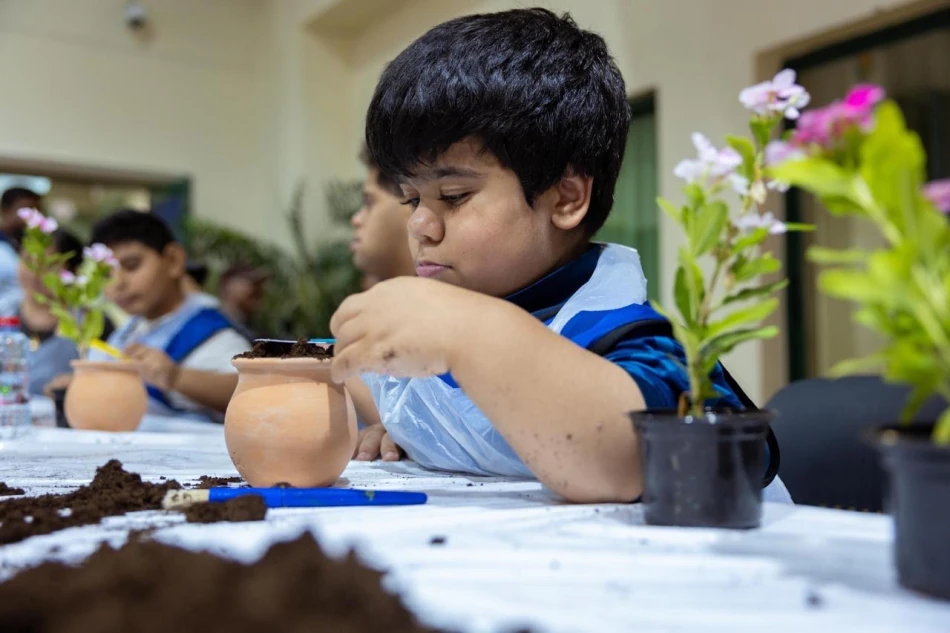
Discover UAE's Enriching Summer Educational Programs for Learners of All Ages
Dubai Launches Comprehensive Summer Education Programs for Nearly 400,000 Students
Dubai's Knowledge and Human Development Authority (KHDA) has unveiled an ambitious summer education agenda targeting 387,441 students across private schools, marking a strategic shift toward year-round learning that positions the emirate as a global leader in educational innovation. The initiative, backed by multiple strategic partnerships, represents Dubai's commitment to bridging the traditional gap between academic years while supporting the city's broader economic diversification goals.
Aligning Education with Dubai's 2033 Vision
The summer programs directly support Dubai's Education Strategy 2033, which emphasizes continuous personal and professional development across all age groups. This approach mirrors successful models in Singapore and parts of the United States, where summer learning has proven effective in preventing academic regression and fostering innovation skills.
The timing is particularly strategic, as Dubai seeks to establish itself as a global hub for talent development and entrepreneurship. By keeping students engaged during traditional break periods, the emirate is creating a pipeline of skilled professionals aligned with its D33 economic strategy.
Entrepreneurship Takes Center Stage
The flagship "Fi Baitna Ra'id" (In Our Home, a Pioneer) summer camp targets students aged 12-17, focusing on entrepreneurship and innovation. Developed in partnership with Hamdan Bin Mohammed Smart University, the program offers practical experience in developing business applications with family involvement—a unique approach that strengthens community bonds while building business acumen.
Participants will present their startup projects to specialized committees and compete for funding to transform ideas into reality. This model resembles successful youth entrepreneurship programs in Silicon Valley and Tel Aviv, where early exposure to business development has produced notable innovation ecosystems.
Bridging the Skills Gap Through Strategic Partnerships
The "Train in Dubai" program represents a significant investment in workforce development, offering practical training opportunities with leading organizations including Chalhoub Group, PwC, and Strategy&. This initiative addresses a critical challenge facing many developing economies: the disconnect between academic learning and market demands.
Reem Walid, Acting Head of Student Skills Development and Quality of Life at KHDA, emphasized that these programs reflect the authority's commitment to lifelong learning and community development. The partnerships with major corporations suggest Dubai's private sector is actively investing in future talent pipelines, indicating confidence in the emirate's long-term economic prospects.
Cultural Preservation Meets Modern Skills
The "Furjan Dubai" summer camp for children aged 4-15 combines entertainment, education, and cultural immersion under the leadership of young Emirati creatives. This approach addresses a common challenge in rapidly developing nations: maintaining cultural identity while embracing modernization.
The program includes workshops in arts, sports, and entrepreneurship, alongside interactive activities such as emergency services awareness and small student business operations. This comprehensive approach mirrors successful cultural education models in countries like South Korea and Japan, where traditional values are integrated with modern skill development.
Inclusive Education as a Competitive Advantage
The "Dubai Club for People of Determination" summer program, running from June 23 to August 1, 2025, demonstrates Dubai's commitment to inclusive education. By providing specialized recreational, educational, and sports activities with support services like sign language interpreters, Dubai is positioning itself as a leader in accessible education.
This initiative aligns with the UAE's "Year of Community 2025" and reflects growing global recognition that inclusive education systems produce more innovative and adaptable societies. Countries with strong inclusive education frameworks, such as Finland and Canada, consistently rank high in global competitiveness indices.
Market Implications and Investment Potential
For investors and education sector stakeholders, Dubai's comprehensive approach signals several opportunities. The emirate's investment in year-round education infrastructure suggests growing demand for educational technology, specialized training facilities, and innovative learning platforms.
The partnership model with private corporations indicates potential returns for companies willing to invest in talent development. As Dubai continues to diversify away from oil dependency, human capital development becomes increasingly critical to economic success.
Digital Engagement and Community Building
KHDA's social media awareness campaign to promote optimal summer vacation utilization represents a modern approach to educational outreach. By providing inspirational stories and practical advice for parents, the authority is building community engagement around continuous learning.
This digital-first approach positions Dubai ahead of many regional competitors who still rely on traditional communication methods. The emphasis on balanced summer experiences that promote comprehensive student development suggests a sophisticated understanding of modern educational psychology and child development principles.
Most Viewed News

 Sara Khaled
Sara Khaled






